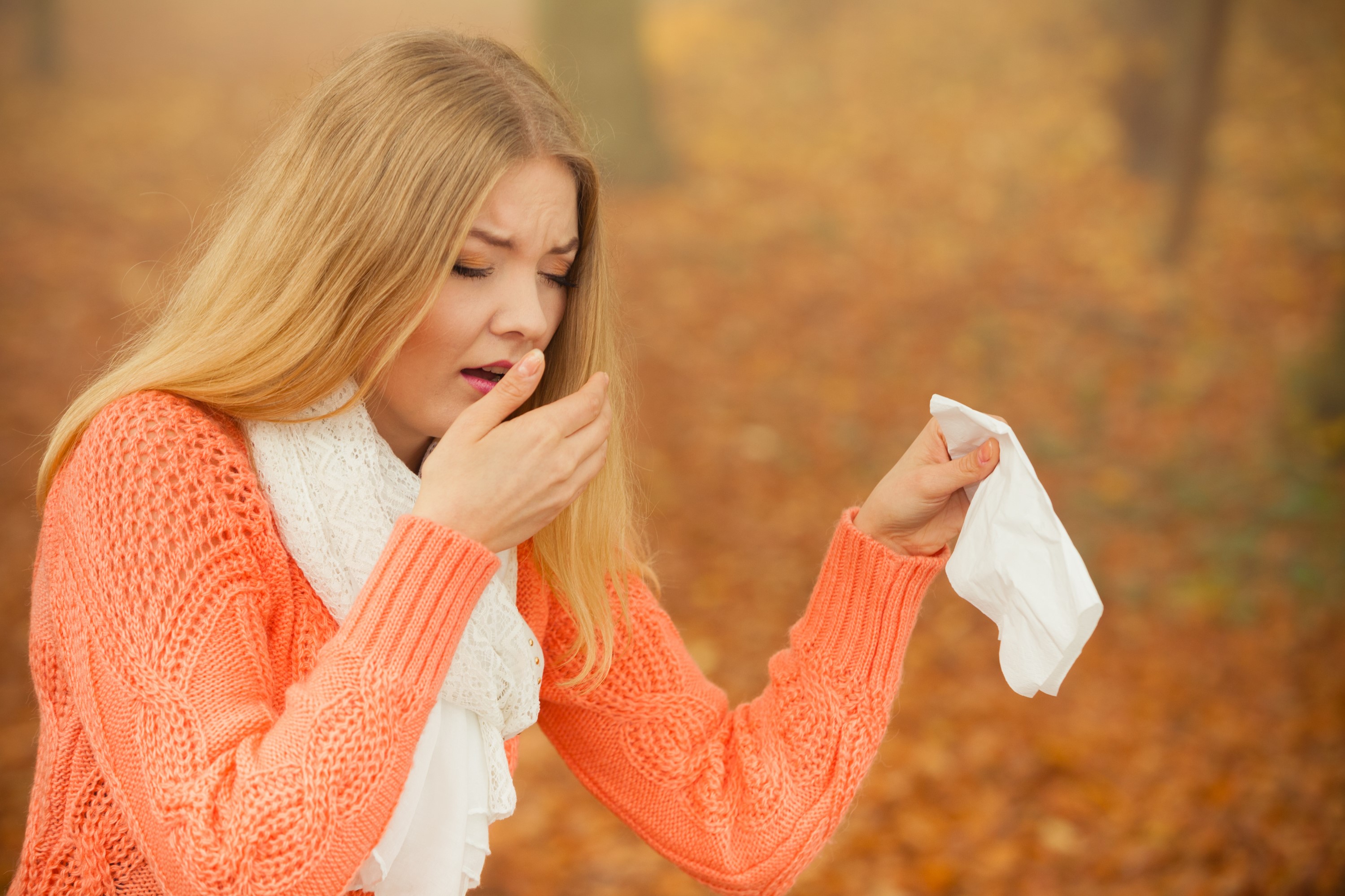This entry was posted on Monday, September 12th, 2016 and is filed under Blog by AENT Associates
 When it comes to Fall allergies, the most likely culprit is ragweed. This blooming weed can wreak havoc on a person’s eyes, nose, and throat from August to November. An estimated 23 million Americans suffer from the seasonal allergic rhinitis symptoms that ragweed and other common allergens can cause, according to the American College of Allergy, Asthma, & Immunology.
When it comes to Fall allergies, the most likely culprit is ragweed. This blooming weed can wreak havoc on a person’s eyes, nose, and throat from August to November. An estimated 23 million Americans suffer from the seasonal allergic rhinitis symptoms that ragweed and other common allergens can cause, according to the American College of Allergy, Asthma, & Immunology.
Symptoms of Ragweed Allergies
More than 17 types of ragweed exist in the United States. The weed makes pollen, a powdery, dust-like substance that can enter your nasal passages and cause seasonal allergy symptoms. If you’re allergic to ragweed, it’s sometimes difficult without a doctor’s appointment to determine the exact cause. Ragweed allergies have the same symptoms as most seasonal allergies. These include:
- Coughing
- Headache
- Itchy/irritated eyes
- Itchy throat
- Runny nose
- Stuffy nose
Some people may also find ragweed pollen worsens their asthma symptoms, which can result in more episodes of wheezing and breathlessness.
Fight Back Against Ragweed
Having a sensitivity to ragweed pollen doesn’t sentence you to a miserable fall season. Instead, there are steps you can take to minimize the symptoms associated with ragweed allergies. Examples include:
- Avoid spending a significant amount of time outside in the early morning hours. This is when pollen counts tend to be the highest.
- Change your clothes immediately after coming in from outside. Ragweed pollen can stick to your clothes, leading to allergy symptoms.
- Always take a shower before going to bed to remove any additional pollen that may have collected on your skin and hair.
- Wash your hands after every time you pet an animal that’s come in from the outdoors. Pets like cats and dogs can often collect pollen on their fur.
- Take an over-the-counter allergy medication, such as loratidine (Claritin), fexofenadine (Allegra), or cetirizine (Zyrtec). You can also take an antihistamine, which can dry up some of the excess phlegm.
- Don’t leave the windows to your home and/or car open, which will cause you to breathe in more allergy-causing pollen.
- Watch the news or check resources such as Weather.com for daily pollen counts. The weather report will likely alert you to a very high pollen count when you should avoid going outdoors as much as possible.
While allergy season is often limited to Fall and Spring, there are many ways you can combat symptoms associated with ragweed pollen exposure.
Preparing for Allergy Season
In addition to treating ragweed allergies, being aware that you are susceptible to the pollen in ragweed means that you can plan ahead for next year’s allergy season. In early August, you can start taking an antihistamine, which can help to reduce the likelihood you will experience allergy symptoms.
If you find your allergies are still interfering with your daily activities, including your ability to breathe well or spend any amount of time outdoors, you may wish to consider making an appointment to see one of our allergy and ENT professionals. Allergy testing to confirm ragweed as the true cause of your allergies, prescription medications, and even potentially immunotherapy (allergy shots or drops) may help to reduce the ragweed symptoms that plague you seasonally.
For more information on tips to fight ragweed and allergy treatments, please call Allergy & ENT Associates at (713) MY-SINUS.



